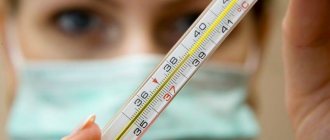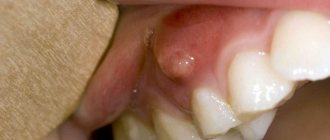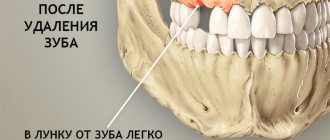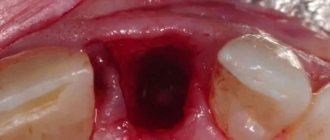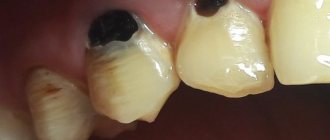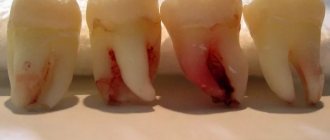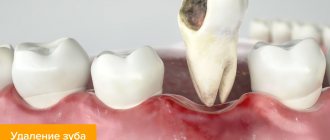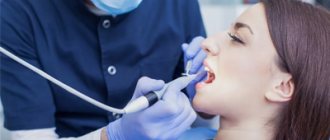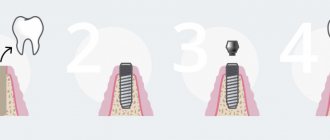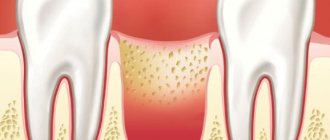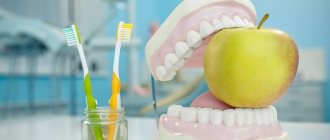From this article you will learn:
- Temperature after tooth extraction
- Why does the temperature rise after tooth extraction?
- In what other cases does hyperthermia occur?
- Are fevers associated with tooth extraction dangerous for children?
- How long does the temperature last after tooth extraction?
- How to help yourself at home with a hyperthermic reaction
- When you really can’t do without a doctor
- How to prevent your temperature from rising
- What is the role of the clinic in the prevention of hyperthermic conditions?
Tooth extraction in an adult or child is stressful, an operation, and unpleasant sensations before and after the procedure. And when it seems that everything is over, the patient discovers that he has a fever. Reaction – fear, repeated stress, worries.
Heat
Hyperthermia can be a natural reaction to surgery and a sign of a pathological condition. What should a patient do and when should he urgently seek medical help?
Why does the temperature rise after tooth extraction?
Hyperthermia is a natural reaction of the body to the action of pathogenic flora and viruses. They die at elevated temperatures. And the reason for visiting the dentist is precisely the infection of the oral cavity with pathogenic flora. The doctor’s task is to identify the causes of inflammation and stop its source.
Removal of a tooth
Reasons for tooth extraction:
- ineffectiveness of conservative treatment of periodontitis;
- impassable root canals;
- mobility of the dentition in periodontal diseases;
- damage to dental canals;
- purulent processes - abscess, phlegmon.
All diseases for which tooth extraction is one of the treatment methods cause infection with pathogenic flora. It is transmitted throughout the body by hematogenous route. Therefore, during treatment, and even more so during the removal of a molar, incisor or canine tooth, the wound may become infected.
If a wisdom tooth has been extracted, it is usually accompanied by a large wound. Stitches are required. Due to the weakness of the walls of the blood vessels, a hematoma can form. Before the procedure, the surgeon must warn the patient about this.
Therefore, an increase in temperature is a normal reaction to injury. But only if hyperthermia lasts 1–2 days after surgery and does not rise above 38 degrees. If the temperature increases and additional symptoms are added, then this is a reason to consult a doctor and find out the causes of this condition.
Features of the procedure
Tooth extraction is not performed without indications. We perform treatment either planned or emergency. In both cases, a preliminary diagnosis is carried out.
The reason for the procedure may be:
- periodontitis or periodontitis;
- root canal trauma;
- planned orthopedic treatment;
- complex tooth crown injury;
- developmental anomalies;
- neoplasms in the tooth area.
Extraction can be carried out in a simple way, when the crown is simply separated from the gum tissue and the entire tooth is removed, or in a complex way, in which the dentist dissects the gum or periosteum.
In what other cases does hyperthermia occur?
A visit to a maxillofacial surgeon and surgery is a stressful situation. The temperature can rise even against the background of emotional experiences.
Possible reasons for the increase in temperature after molar extraction:
- ARVI, acute respiratory infections, relapse of tonsillitis - intervention in the oral cavity causes a decrease in immunity. Therefore, surgery can be a provoking factor in chronic sore throats, making the patient more susceptible to pathogenic flora. Rhinorrhea, sneezing, coughing, and pain when swallowing are added to hyperthermia.
- Alveolitis is an infection of the tooth socket. After its removal, a blood clot forms in the socket.
- Its task is to prevent wound infection. If the doctor's recommendations are not followed - eating, chewing on the operated side, frequent rinsing - the clot detaches and the wound becomes infected. The result is inflammation, pus, severe pain and an increase in temperature to pyretic values.
- Mistakes by a dental surgeon when removing a tooth include excessive tissue trauma, leaving fragments and parts of the root in the socket.
If any unpleasant symptoms appear after removal of a molar, incisor or molar, you should contact an oral and maxillofacial surgeon.
Symptoms
The danger of a dental cyst lies in the fact that signs of pathology appear only when the neoplasm reaches a relatively large size. In the early stages, small cysts do not manifest themselves in any way, meanwhile the infectious process covers an increasingly larger area of healthy tissue. In the initial development of pathology, cysts are discovered by chance during routine examinations or treatment of other diseases.
The duration of the formation of a dental cyst takes only 1-2 days; as it develops, the following symptoms may occur:
- unpleasant and even painful sensations in the tooth, which intensify when chewing solid food;
- protrusion of the gum of a tooth, in the area of the root of which a cyst forms, the growth of the gum becomes larger over time, redness is observed;
- the formation of a fistula in the area above the root of the tooth, the release of serous or purulent accumulations from it;
- general weakness and malaise;
- increase in body temperature.
Note! When a dental cyst occurs, the symptoms are not immediately visible; they appear in the later stages of development. The pain when a tumor appears is aching in nature, but it is less pronounced than the pain caused by caries and pulpitis.
If a clinical picture occurs and you suspect a pathological process, be sure to consult a doctor. Under no circumstances should you resort to self-treatment - the dental cyst must be removed. In addition, taking the wrong medications can worsen the patient’s overall well-being.
Sometimes there is no pain in the oral cavity; instead, the basis of the clinical picture is intense headaches. The cause of this phenomenon may be a cystic formation in the maxillary sinus.
Are fevers associated with tooth extraction dangerous for children?
Extraction of a molar, incisor or canine for children is carried out if the baby tooth interferes with the growth of the permanent one or when it is completely destroyed. But this is a simple removal, since baby teeth are not held tightly and, often, pain relief is not even required. The wound is small and does not bleed.
Fever after tooth extraction
An increase in temperature to 37–37.5 degrees is a normal reaction of the body. If the readings on the thermometer are higher, then you need to consult a dentist. If pathologies in the oral cavity are excluded, you should undergo an examination by a pediatrician.
How to help yourself at home with a hyperthermic reaction
After extraction of a molar, canine or incisor, the surgeon will give recommendations and explain possible reactions of the body. Therefore, the patient must follow the rules of oral care:
- Do not consume food or drinks for 2 hours after the procedure. Do not chew on the affected side of the jaw.
- Take antibiotics as prescribed by your doctor, rinse your mouth with antiseptic solutions.
- If your temperature rises, you need to monitor your condition. It is allowed to take antipyretics based on paracetamol or ibuprofen as prescribed by a doctor. For adults - in tablet form, for children - in the form of syrups in dosages according to age or suppositories at night or during daytime sleep.
- Drinking plenty of fluids and rest are recommended. The patient should be in a ventilated area. There is no need to wrap yourself up or do any thermal procedures.
What you can and cannot do after tooth extraction
If the temperature does not subside on its own or the condition worsens, you should contact a medical facility. If it rises to 39 degrees or higher, call an ambulance.
Reviews from patients
I had my wisdom tooth removed. After the procedure, I was exhausted, and in the evening my temperature rose sharply, but not much. My doctor told me everything and explained what this could be. I didn't take the pill. My husband had no fever at all after the removal. I thought that this was not a terrible phenomenon. I only ate liquid porridge. Surprisingly, the next day everything went away for me. All that remained was an unpleasant feeling at the removal site.
I've always been afraid of dentists. I haven't visited these doctors for a long time. Accordingly, my teeth were in critical condition. When my cheek suddenly became swollen, I was seriously scared. There was nothing to do, I ran to the hospital, to the doctors who were terrible for me. The doctor was dismayed by my condition. Unfortunately (and for obvious reasons), my tooth was not saved. I felt calm in the dentist's chair. It didn't hurt very much. The injection worked well. I left the office and started shaking. Probably due to an emotional background and due to the difficulty of removal (it was a distant tooth), my temperature jumped sharply in the evening. I was pounding, the fever was intense, about forty degrees. I took antipyretic tablets (2 pieces). I feel a little better. I drank another one at night. Maybe someone will say a lot, but I felt bad. The next day made my life easier, my temperature was 37ºC. The condition is more or less normal. However, for some reason the removal site ached. On the first day, amid the heat, I didn’t notice it. On the third day I experienced significant relief. There was no temperature, the pain did not bother me. Thank God, but everything is fine now. I will now try to take more responsible care of my teeth. After all, temperature is not a very serious problem, but it is still a dangerous signal.
Sources used:
- Bernardsky Yu. I. Fundamentals of maxillofacial surgery and surgical dentistry. - M.: Medical literature, 2000
- Practical therapeutic dentistry" (Nikolaev A.)
- Crall JJ, Donly KJ (2015). "Dental sealants guidelines development: 2002-2014". Pediatric Dentistry.
- Faculty of Dentistry and Medical Technologies St. Petersburg State University
When you really can’t do without a doctor
Any hyperthermia lasting more than 3 days is a reason to consult a doctor.
Symptoms after tooth extraction
Symptoms for immediate examination by a dental surgeon:
- increased pain 1–2 days after molar extraction;
- swelling of the gums, cheeks;
- gum hyperemia;
- discharge of blood and pus from the wound cavity;
- bad breath;
- enlarged lymph nodes under the lower jaw, behind the ears.
The dentist will conduct an examination. According to indications - cleaning and washing the wound, removing tooth fragments or roots, applying antibacterial drugs to the wound, suturing the wound.
After cleaning the wound, the inflammation subsides and the temperature drops. The doctor will prescribe additional treatment - a visit to wash the wound and apply antibacterial dressings, take antibiotics, rinse with antiseptics.
Consequences
Without adequate treatment, the dental cyst continues to grow and develop; in advanced stages, large neoplasms destroy the bone tissue of the skull, as a result it is replaced by connective tissue formations, which leads to the development of the following complications:
- dissolution of the jaw bone, which depends on the growth of the cyst;
- the formation of pus in the cyst, further purulent inflammation can lead to the development of an abscess;
- inflammatory process of lymph nodes located near the source of infection;
- development of osteomyelitis or periostitis;
- development of chronic sinusitis when the cyst grows in the maxillary sinus;
- pathological fracture of the jaw bones when the cyst reaches a large size;
- development of phlegmon due to a long-term purulent inflammatory process in the cyst;
- sepsis – blood poisoning;
- degeneration of a cyst into a malignant tumor without timely treatment.
Many patients are interested in why a dental cyst appears in the maxillary sinus, how dangerous it is and its symptoms. The formation of a cyst of this type occurs as a result of untreated inflammation of the tooth root in the upper jaw. A granuloma forms at the root of the tooth, which increases in size and becomes a peri-radicular cyst, then takes a position in the maxillary sinus. The volume of such a cyst can reach 9-12 cubic centimeters.
The symptomatic picture includes painful sensations, the nature of which is similar to trigeminal neuralgia, pain in the occipital, temporal and parietal regions of the head. Externally, a dental cyst can be identified by the asymmetry of the face. Tooth cyst - photo shows a cyst in the maxillary sinus.
How to prevent your temperature from rising
- After extraction of a molar, incisor or molar, the doctor’s recommendations should be followed. How to behave as a patient:
- do not eat or drink for the first 2 hours;
- do not chew on the affected part of the jaw;
- do not smoke – preferably for several days and definitely on the first day after the procedure;
- do not rinse your mouth without a doctor’s prescription - this helps wash out the blood clot;
- Until recovery, refrain from visiting public places - baths, saunas, procedures with a cosmetologist;
- do not touch the wound with your fingers or a toothbrush;
- take prescribed antibiotics, anti-inflammatory drugs;
- come for examination at the appointed time;
- do not heat or rinse your mouth with alcohol-containing preparations, vodka, or alcohol.
A day or two after removal, the doctor will prescribe baths with antibacterial drugs. The liquid should be collected and held, but not rinsed.
Postoperative actions
Preventive measures consist of the following actions:
- Antiseptic treatment (for example, Rotokan or Burana 400 solution).
- Sanitation.
- Carrying out regular hygiene procedures.
- Using traditional methods.
In folk medicine, calendula, chamomile, St. John's wort, sage and calamus are used. They use traditional methods in parallel with medications.
On the day of removal, you should not visit the bathhouse or eat hot or cold food. It is necessary to thoroughly avoid contact with sick people, beware of winds and drafts. You should not eat too hard foods, so as not to damage your painful gums. Do not drink alcohol or consume hot spices.
What is the role of the clinic in the prevention of hyperthermic conditions?
The clinic’s task is to create all conditions for the patient’s recovery and prevent the development of complications. What is required for this:
- The operation is performed under aseptic conditions by an experienced doctor in compliance with all standards and treatment protocols.
- The surgeon must explain to the patient the sequence of his actions, the rules of behavior after removing an incisor, molar or canine. Prescribe treatment and conduct follow-up examinations. If necessary, adjustment of prescriptions.
- If complications develop, provide high-quality and timely medical care.
Recovery after surgery depends on the quality of the surgeon’s work and the patient’s compliance with his recommendations. Hyperthermia after tooth extraction is a normal reaction of the body. You shouldn't be afraid of her. If the temperature has risen above pyretic values - from 38 degrees and above, then you need to urgently contact the clinic for examination and treatment correction.
Causes
There are several reasons why a dental cyst develops. The main reason is the activity of pathogenic microorganisms in a closed dental space; the following risk factors contribute to this:
- severe pathology, lack of timely treatment and incorrect treatment of dental diseases - caries, periodontitis, pulpitis;
- infectious complications after tooth filling, implantation procedures - in such cases, the doctor removes not only the cyst, but also the crown or implant, this avoids relapse;
- complications during teething, especially when wisdom teeth erupt - dental tissues injure the gums, bacteria get into microcracks,
- microorganisms also enter wounds that form due to mechanical damage to teeth;
- Nasopharyngeal diseases – infections in the nose and throat can spread to the oral cavity.
To provide adequate treatment, it is necessary to accurately determine the cause of the development of a dental cyst; based on it, the dentist will prescribe suitable therapy. So, in cases of injury, treatment consists of removing the cyst and tissue regeneration, but if the cyst is a complication of another disease, then in addition to removing the vesicle, the patient will be prescribed treatment for the underlying disease.
